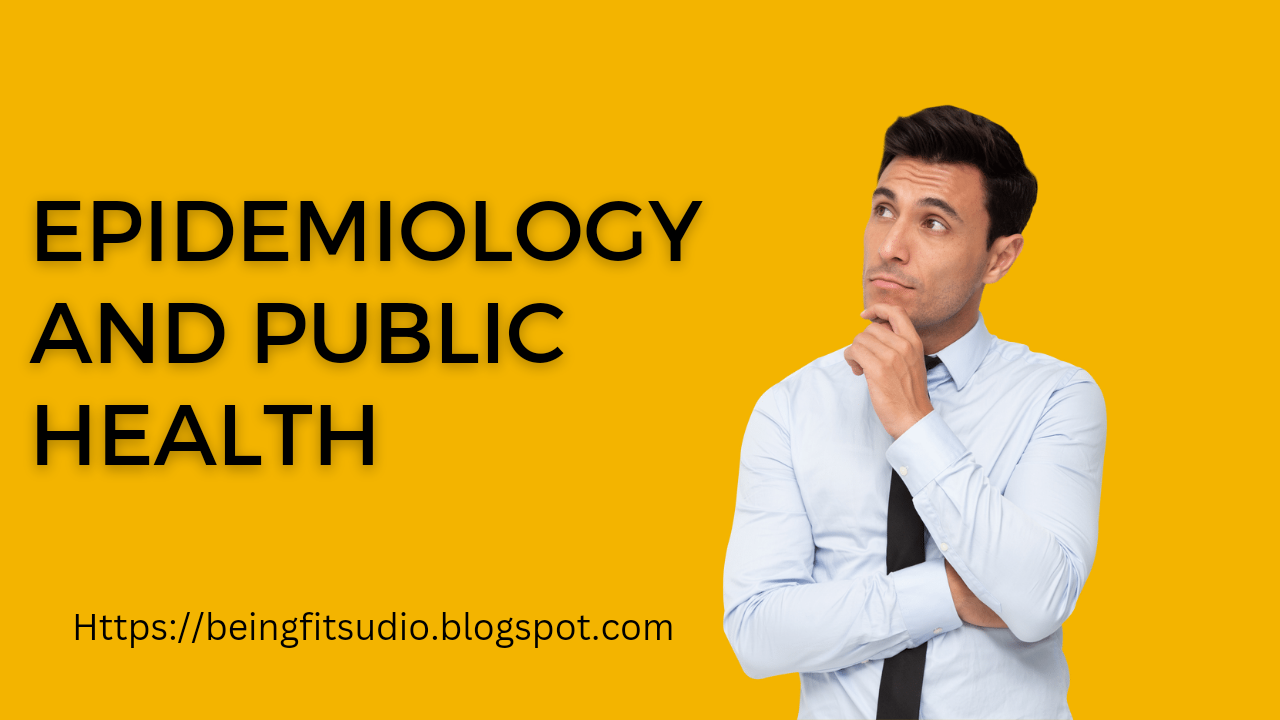Epidemiology and public health
 |
| Epidemiology and public health |
Epidemiology and public health are two interrelated fields that play a crucial role in understanding and addressing the health needs of communities. Epidemiology is the study of the distribution and determinants of health-related states or events in specified populations, while public health is the practice of promoting and protecting the health of communities through education, policy, and interventions. Together, these fields work to identify and address health issues, prevent disease, and improve the overall well-being of populations.
One of the key roles of epidemiology in public health is to identify and track the spread of disease. Epidemiologists use a variety of tools and methods to gather data on the incidence, prevalence, and distribution of diseases within a population. This information is used to understand the patterns and causes of disease and to develop strategies for preventing and controlling outbreaks.
For example, epidemiologists may use surveillance systems to track the spread of a disease, such as influenza, and use this information to develop public health interventions, such as vaccination campaigns.
Another important role of epidemiology in public health is to identify risk factors for disease.
Epidemiologists study the environmental, social, and genetic factors that contribute to the development of disease. This information is used to develop interventions to reduce the risk of disease and improve health outcomes. For example, epidemiologists may study the relationship between air pollution and lung cancer, and use this information to develop policies to reduce air pollution and improve public health.
Public health interventions are also a crucial aspect of epidemiology and public health. Public health interventions are designed to prevent disease, promote health, and improve the overall well-being of communities. These interventions can take many forms, such as education and awareness campaigns, vaccination programs, and policy changes. For example, a public health campaign may be launched to increase awareness of the importance of handwashing to prevent the spread of disease.
Epidemiology and public health also play a critical role in addressing health disparities. Health disparities refer to the differences in health outcomes and access to health care experienced by different groups of people. Epidemiology and public health work together to identify and understand these disparities and to develop interventions to reduce them. For example, an epidemiological study may identify that a certain ethnic group has a higher incidence of a certain disease, and public health interventions can be developed to address this issue.
In the end, epidemiology and public health are essential fields that work together to promote and protect the health of communities. Epidemiology and public health work together to identify and track the spread of disease, identify risk factors for disease, and develop interventions to prevent disease, promote health, and improve the overall well-being of communities. Additionally, epidemiology and public health play a critical role in addressing health disparities and working towards equity in health outcomes for all people.
Tags
Health
